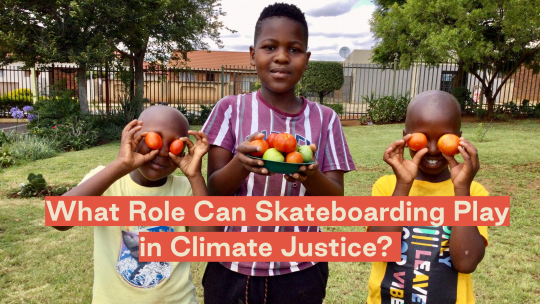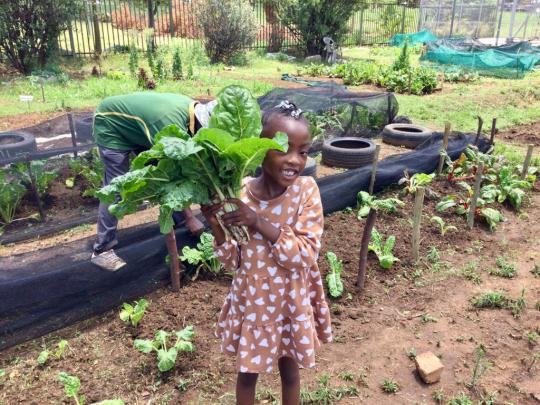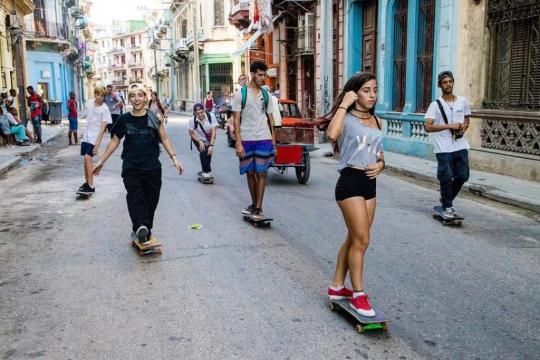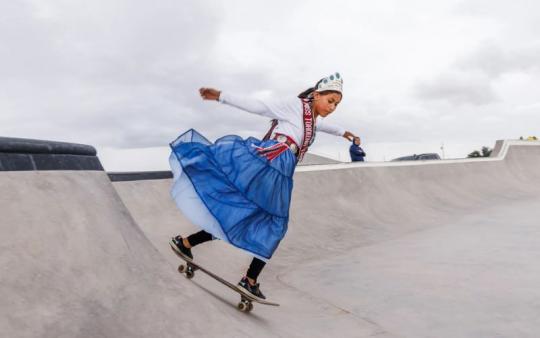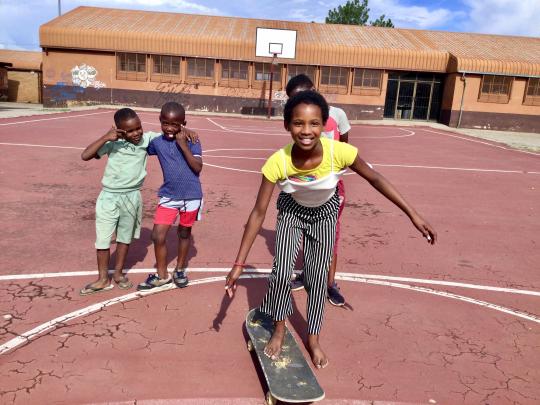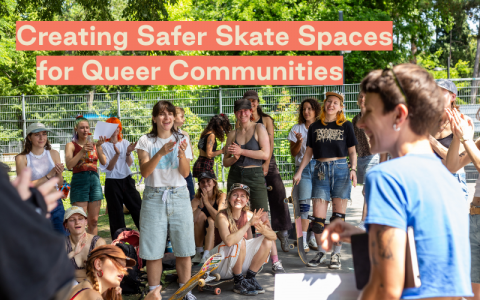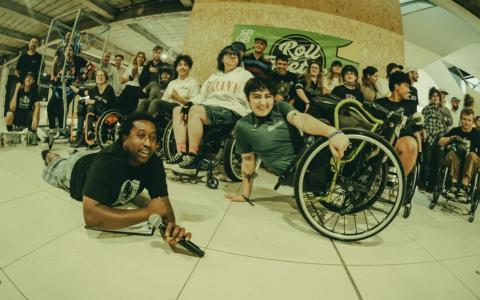Skateboarding has long been tied to rebellion, creative expression and the rejection of normative values. As Indigo Willing so perfectly put it in Skate and Re-generate: skateboarders making a difference to the environment:
“As skateboarders, we have embraced the idea of ‘skating and destroying’ and ‘skating and creating’. But increasingly, we also need to think about ‘skating and re-generating’ in terms of the environment and issues of sustainability.”
This call to skate and regenerate speaks to skateboarding’s evolving identity. While “skating and destroying” captured the countercultural energy that defined early skateboarding, and “skating and creating” opened space for more diverse and inclusive communities, the next step is clear: to root the future of skateboarding in environmental care.
Why Environmental Justice Matters in Skateboarding
Like many industries, skateboarding has its ecological blind spots: the carbon footprint of producing boards and soft goods, the global shipping of materials, the environmental costs of international skate travel, and the pollution tied to concrete-heavy skatepark construction.
Yet within the social skate sector, many initiatives are already building and sustaining connections between skateboarding, land and tradition—showing how skateboarding can be a force not only for uplifting communities, but also for boosting sustainable green practices.
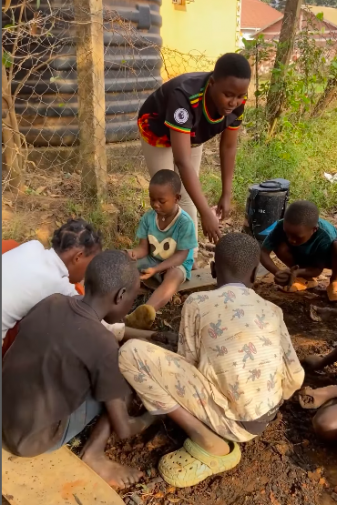
Climate Skaters Kiteezi making briquettes to substitute charcoal-reducing deforestation
Luckily, around the world skaters are already leading the way. From Uganda to Cuba, social skate initiatives show what climate-conscious skateboarding looks like in action.
Skate Projects & Brands Making a Difference
Mams Skate Club (South Africa)
Based in Mamelodi township, Mams Skate Club links skate sessions with gardening, food security, and neighborhood clean-ups. Young people earn skateboard parts by spending time in the community garden, where they learn to grow nutritious food and care for the land. This simple but powerful exchange connects skating with long-term sustainability and resilience.
Climate Skaters Kiteezi (Uganda)
Founded by climate, gender, and sports advocate Kemigisha Cynthia, Climate Skaters Kiteezi combines skateboarding with environmental education. The project uses skate sessions as a platform to teach young people about climate change, waste management, and sustainable practices. Alongside skateboarding lessons, participants get involved in tree planting and community clean-ups, while also experimenting with recycled materials and entering innovation competitions focused on cleaner energy solutions.
Skate Wild (US)
Through wilderness programs and camping trips, Skate Wild helps skaters—particularly those from underserved communities—experience the outdoors in meaningful ways. By bridging skateboarding with nature, the project fosters environmental awareness and appreciation.
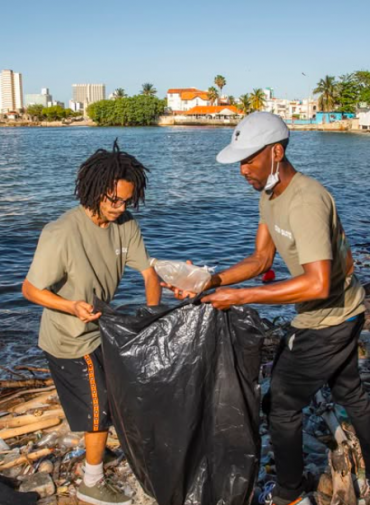
Cuba Skate's beach clean-ups
Odyssey Boards – Skate for Trees (Singapore & Southeast Asia)
Odyssey Boards launched the Skate for Trees initiative in 2021, planting three trees for every board sold. Their reforestation work in Vietnam, Indonesia, and the Philippines is especially impactful in Southeast Asia, a region home to nearly 15% of the world’s tropical forests but also one of the hardest-hit by deforestation.
HYENA (US)
HYENA, based in California, produces skateboard wheels and rails from 100% recycled plastics under the motto: Reduce, Reuse, Reincarnate. All products are made-to-order to avoid overproduction, using locally sourced plastic waste that can be sent back and remade once used.
For a culture that burns through gear quickly, supporting recycled products can make a huge difference—and more skaters are starting to prioritize buying from local shops and sustainable producers.
Cuba Skate
Cuba Skate is one of the most ambitious initiatives linking skateboarding and sustainability, working to build a greener skate scene in Havana and beyond by recycling plastic waste from beaches, rivers, and city plazas into skateable objects like benches, ramps, and boxes. So far, they have constructed a DIY skate plaza from recycled plastic, completed over 125 beach clean-ups, collected more than 20 tons of waste (with a goal of 10+ tons annually), and engaged more than 2,000 locals in sustainability activities. By transforming waste into resources, Cuba Skate is addressing both the lack of skate infrastructure and the urgent need for climate action.
Beyond these examples, many social skate projects have long practiced environmental care through reusing equipment, collecting second-hand boards for redistribution, and organizing community clean-ups at skate spots. These efforts not only reduce waste but also show governments and communities how skateboarding can help regenerate public spaces.
Indigenous-Led Skate Projects and Connection to Land
Environmental justice is deeply tied to land, culture, and identity—and Indigenous-led skate projects show this connection powerfully. In many Indigenous communities, skateboarding is not only a sport but also a way of strengthening ties to land and tradition. The Modern Matriarch Skate Jam in Navajo Nation is one inspiring example, created to uplift Indigenous women skaters and hosted at the newly built Two Grey Hills Skatepark.
The park itself only became a reality after artist and skater Di’Orr Greenwood—a member of the Diné (Navajo) tribe—shared how skateboarding had transformed her life and could help Navajo youth connect to their bodies, communities, and land. Her story was pivotal in securing local support. Other Indigenous-led initiatives, such as Nations Skate Youth (Canada) and Spinifex Skateboards (Australia, Eastern Arrernte Country), highlight how skateboarding can honor cultural traditions while fostering sustainability and resilience.
A Global Call for Climate-Conscious Skating
Too often, environmental movements are dominated by voices from the Global North—countries that also happen to be the biggest contributors to greenhouse gas emissions. Meanwhile, communities in the Global South, which have historically contributed the least, are disproportionately affected by climate change and often have fewer resources to adapt. Yet, as the projects above show, many Global South communities have long practiced sustainable living rooted in deep connections to land and tradition. Social skate projects such as Mams Skate Club, Climate Skaters Kiteezi, and Cuba Skate are amplifying these practices and showing what it means to skate and regenerate.
The message is clear: every skater has a role to play in climate action. For skate companies, especially in the Global North, this means rethinking production and distribution practices. For individual skaters, it can be as simple as supporting ethical brands like Cariuma and Element, or even better, buying from your local skate shop. You can also donate old boards and hardware to initiatives in need, take part in community clean-ups, or support projects that combine skateboarding with sustainability. Together, these actions build a future where skating is not only about freedom and fun, but also about protecting the planet we skate on.
